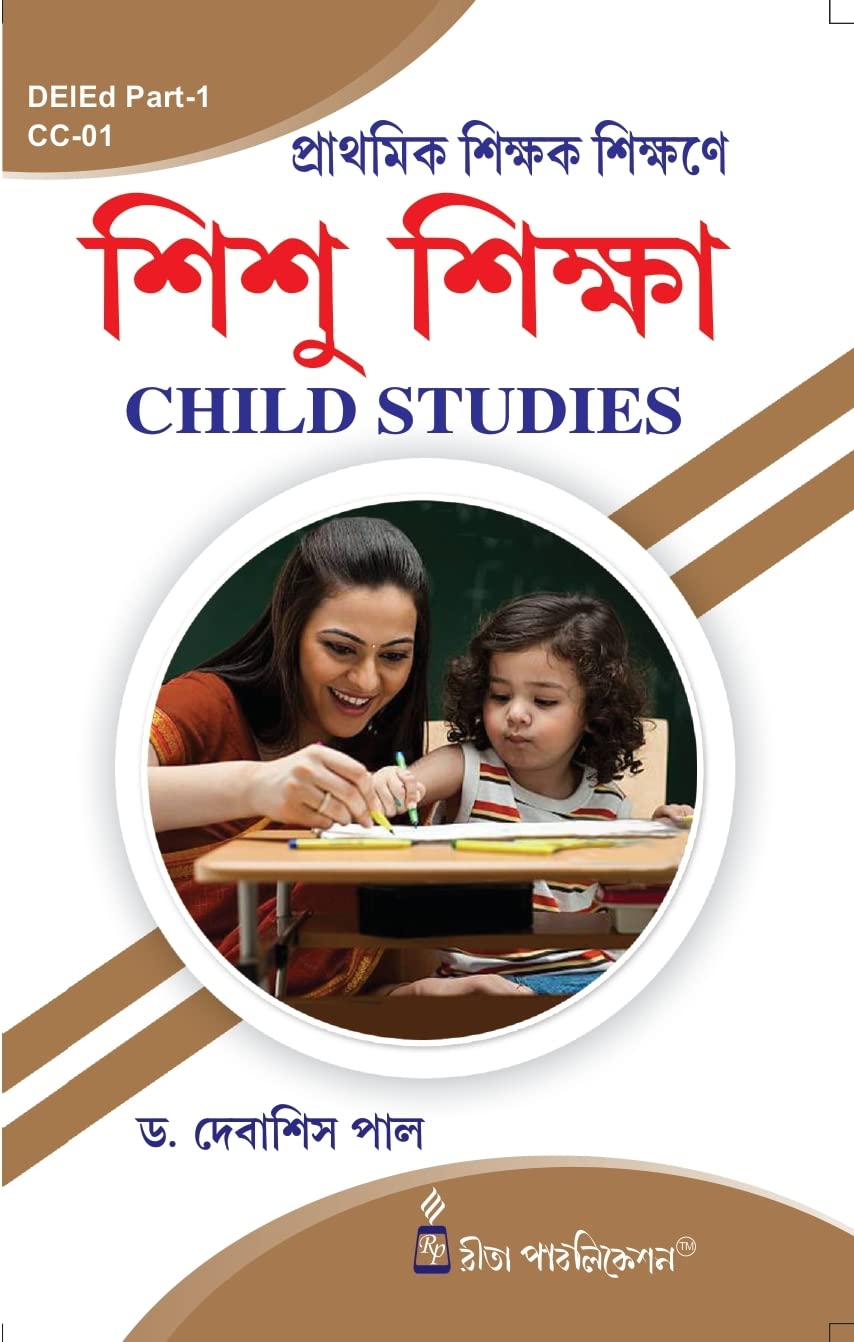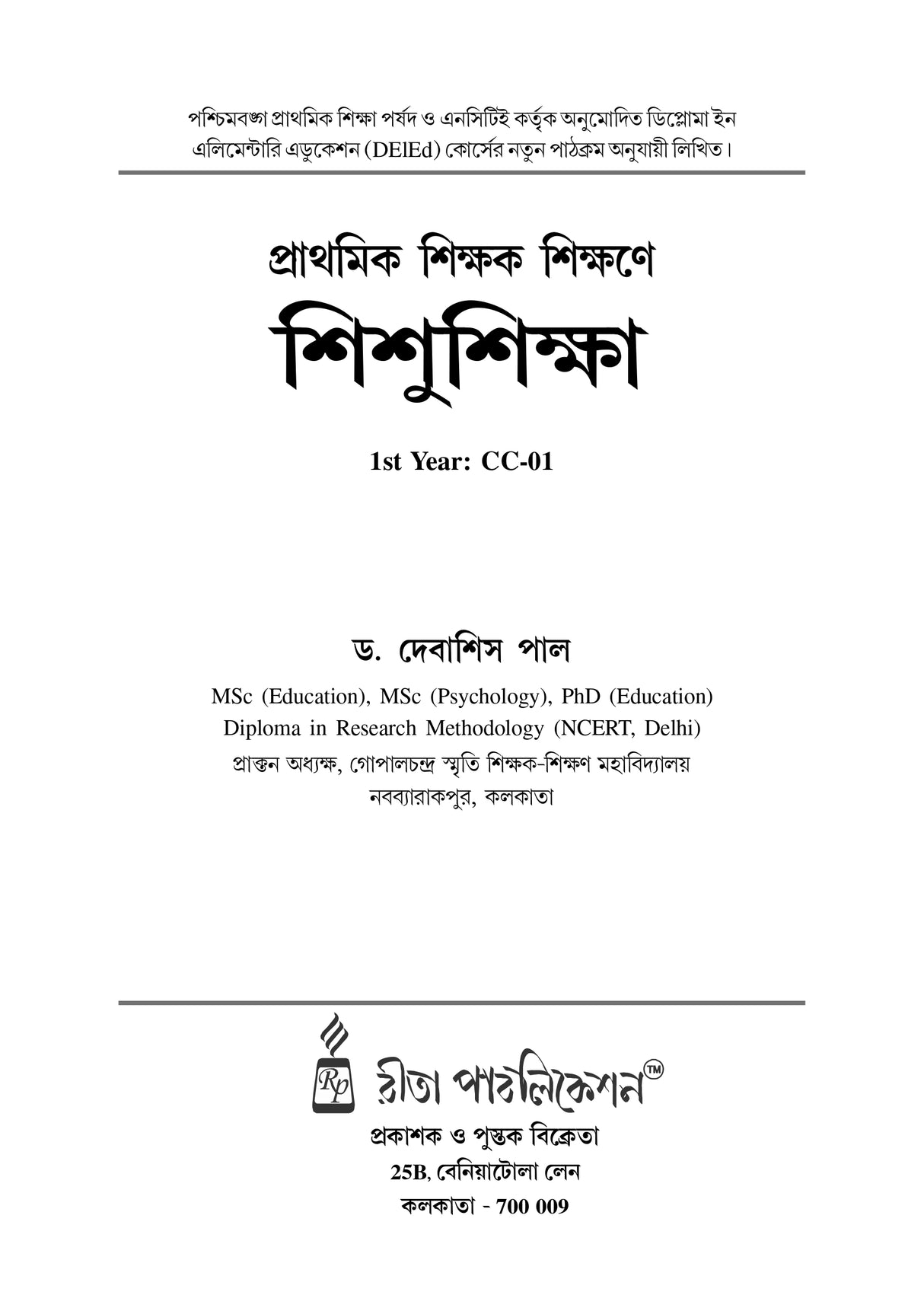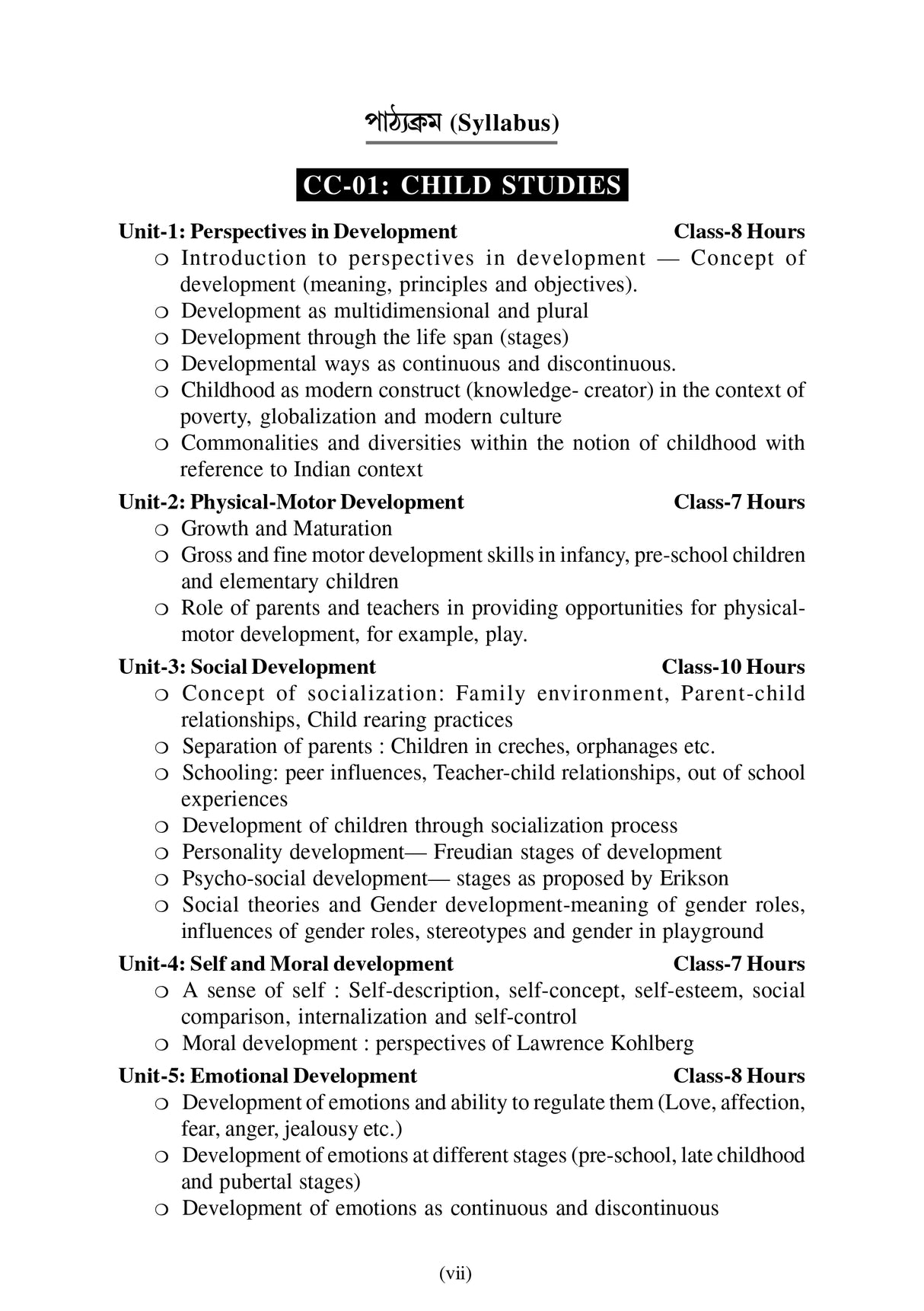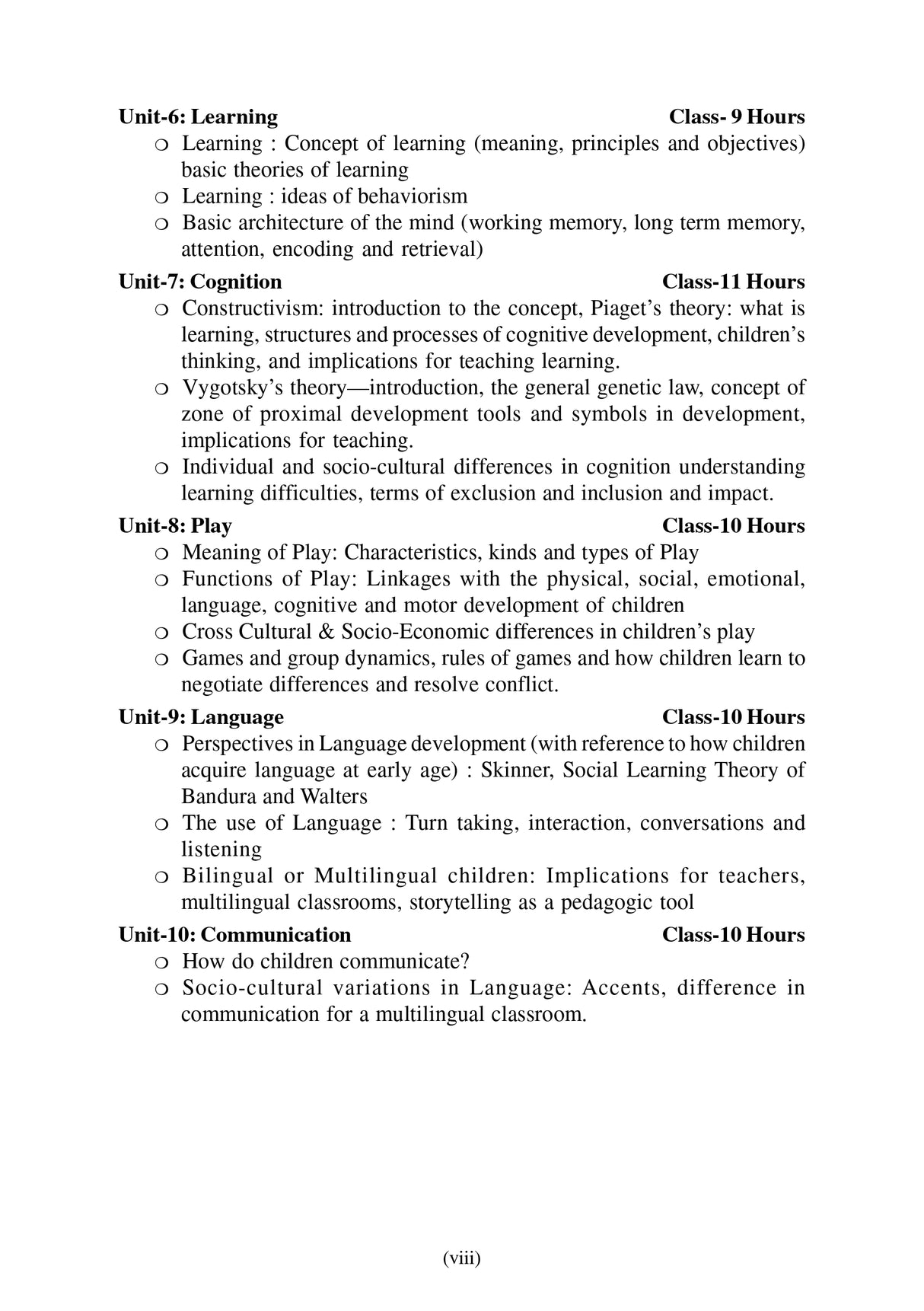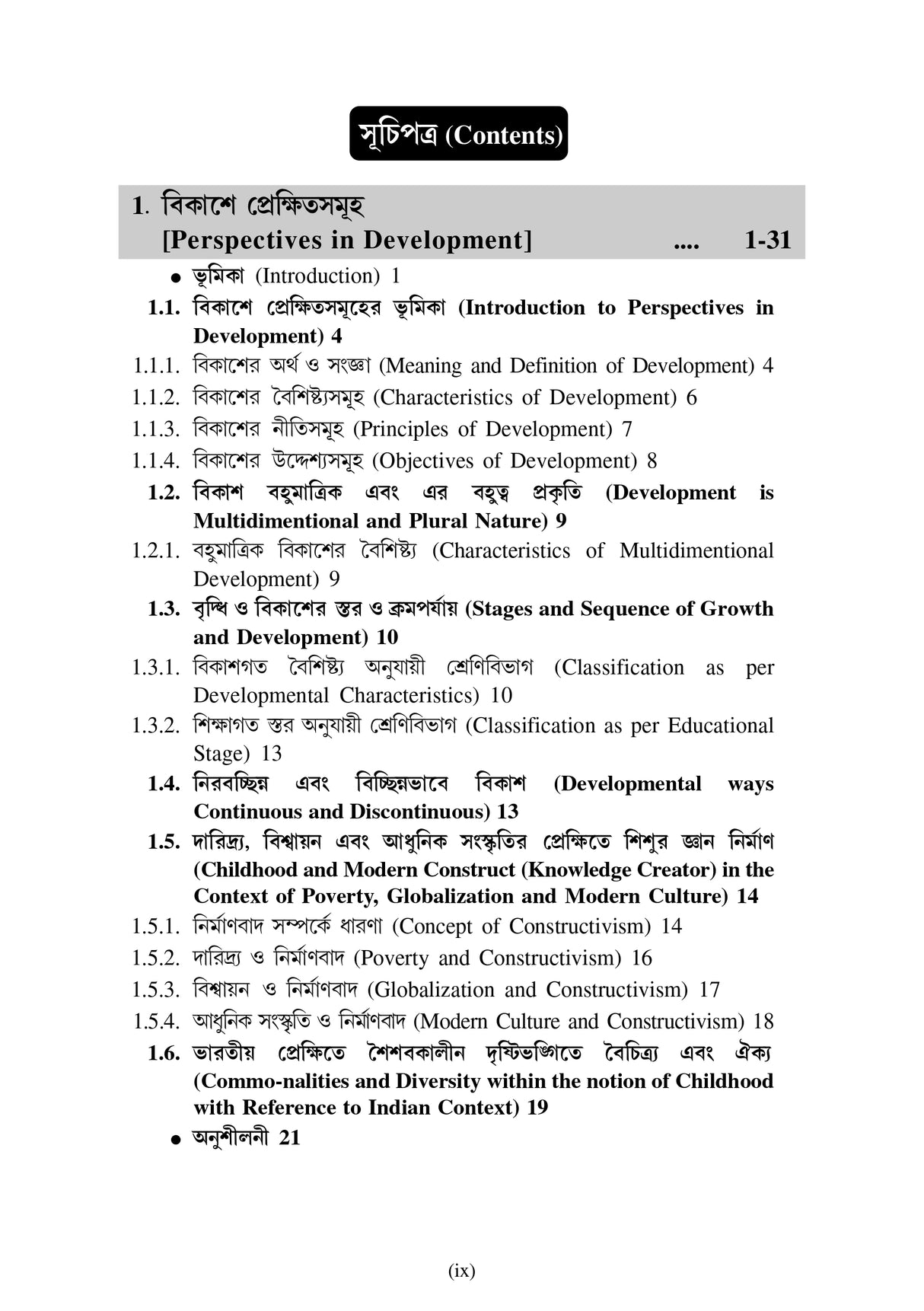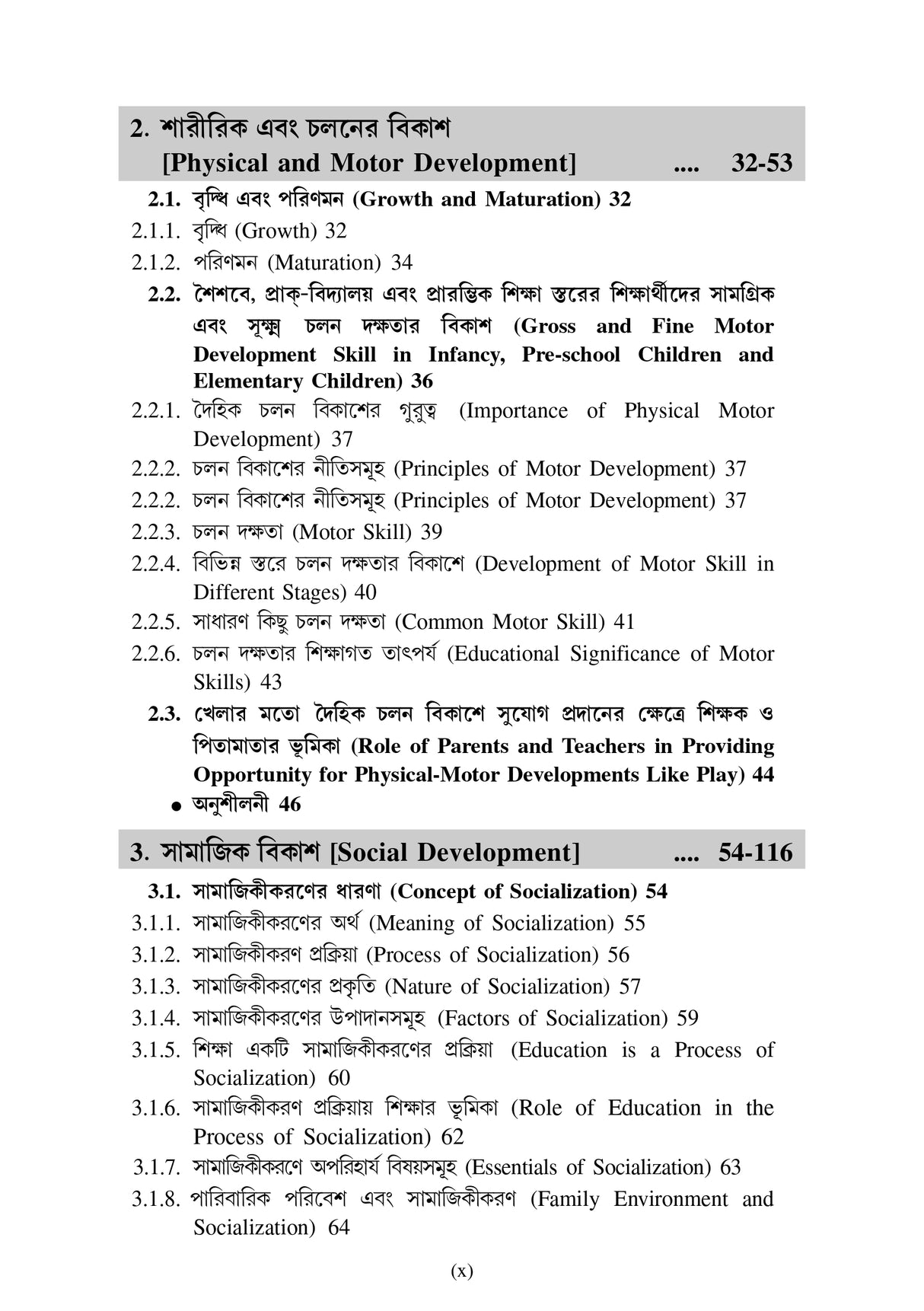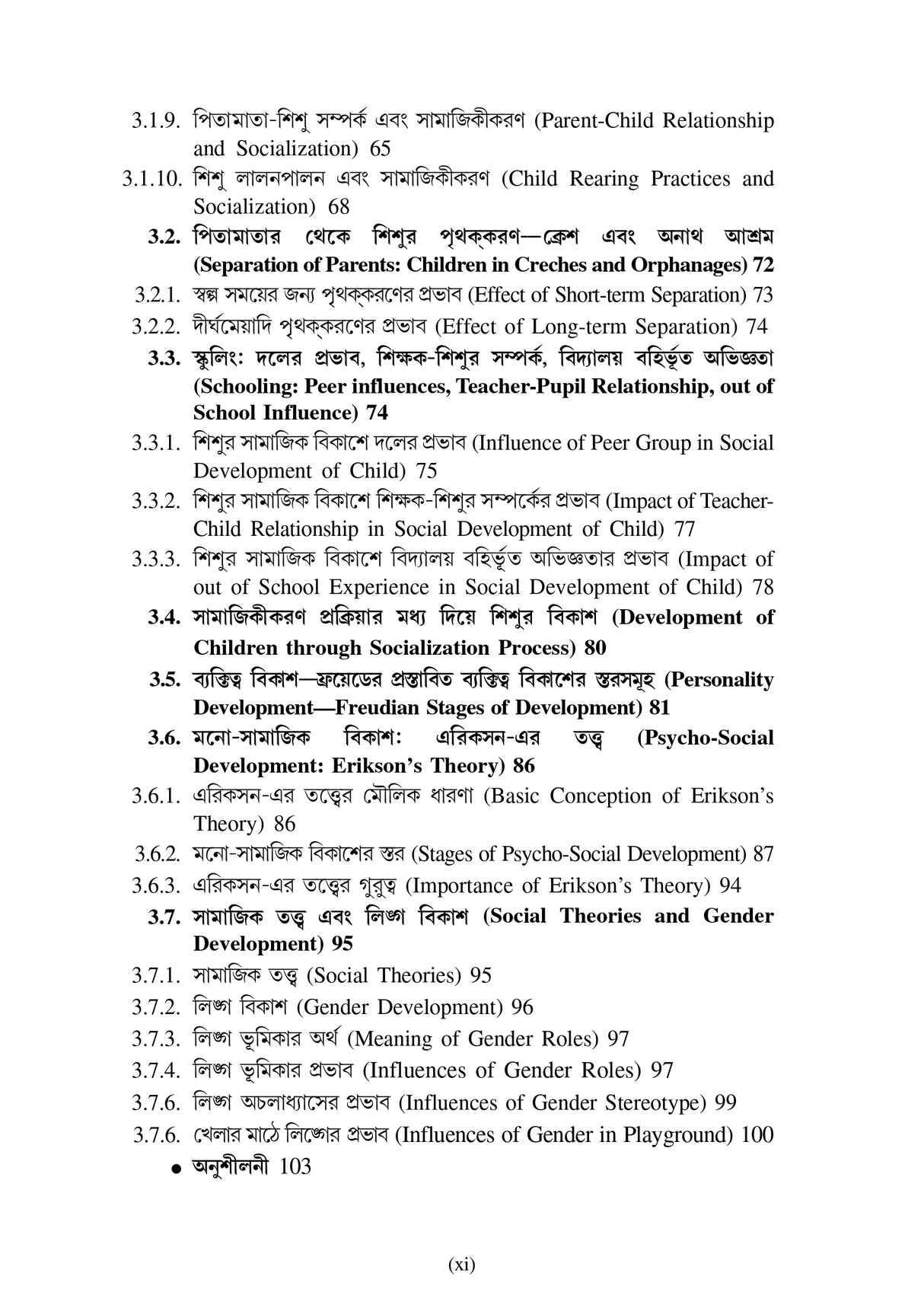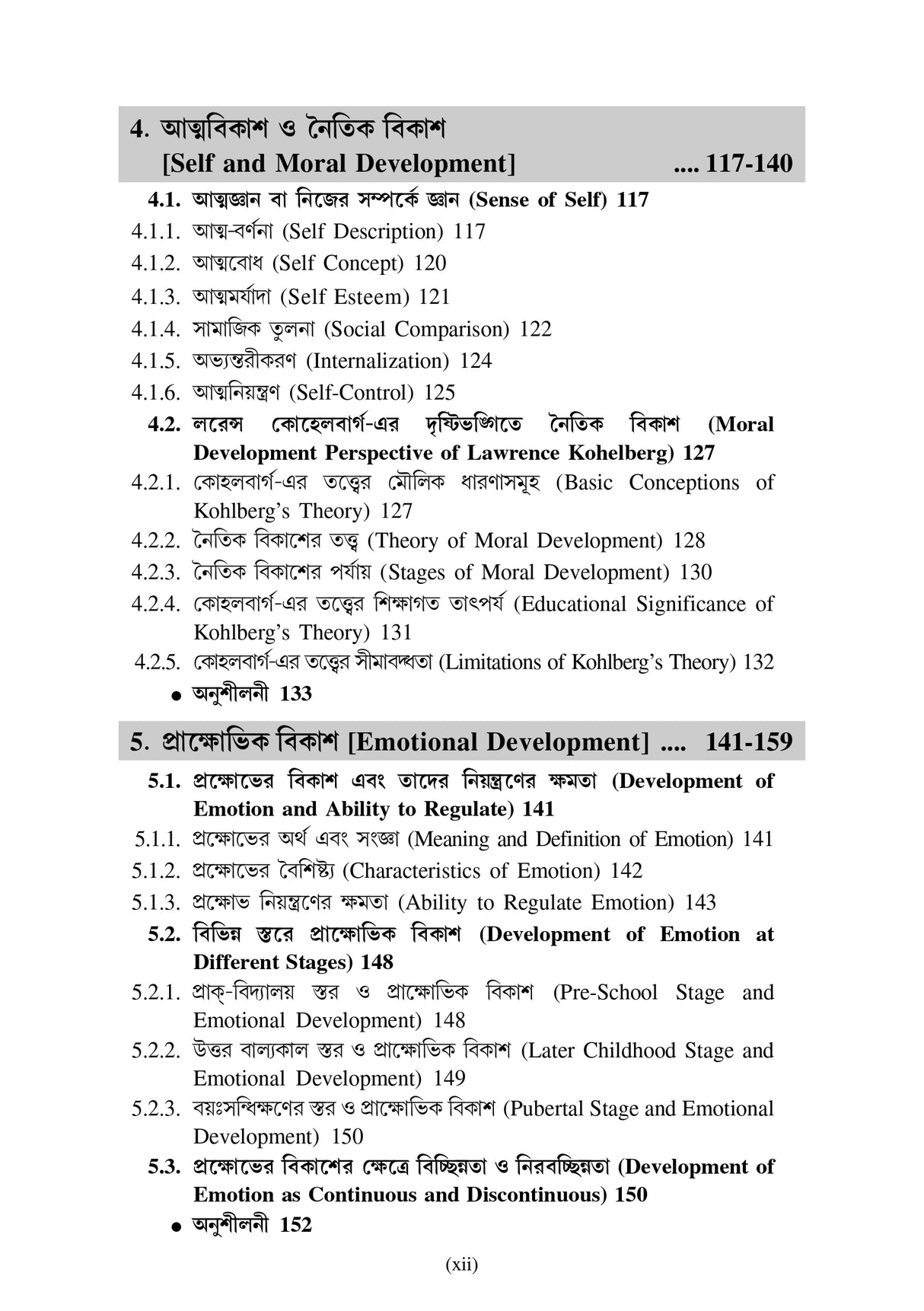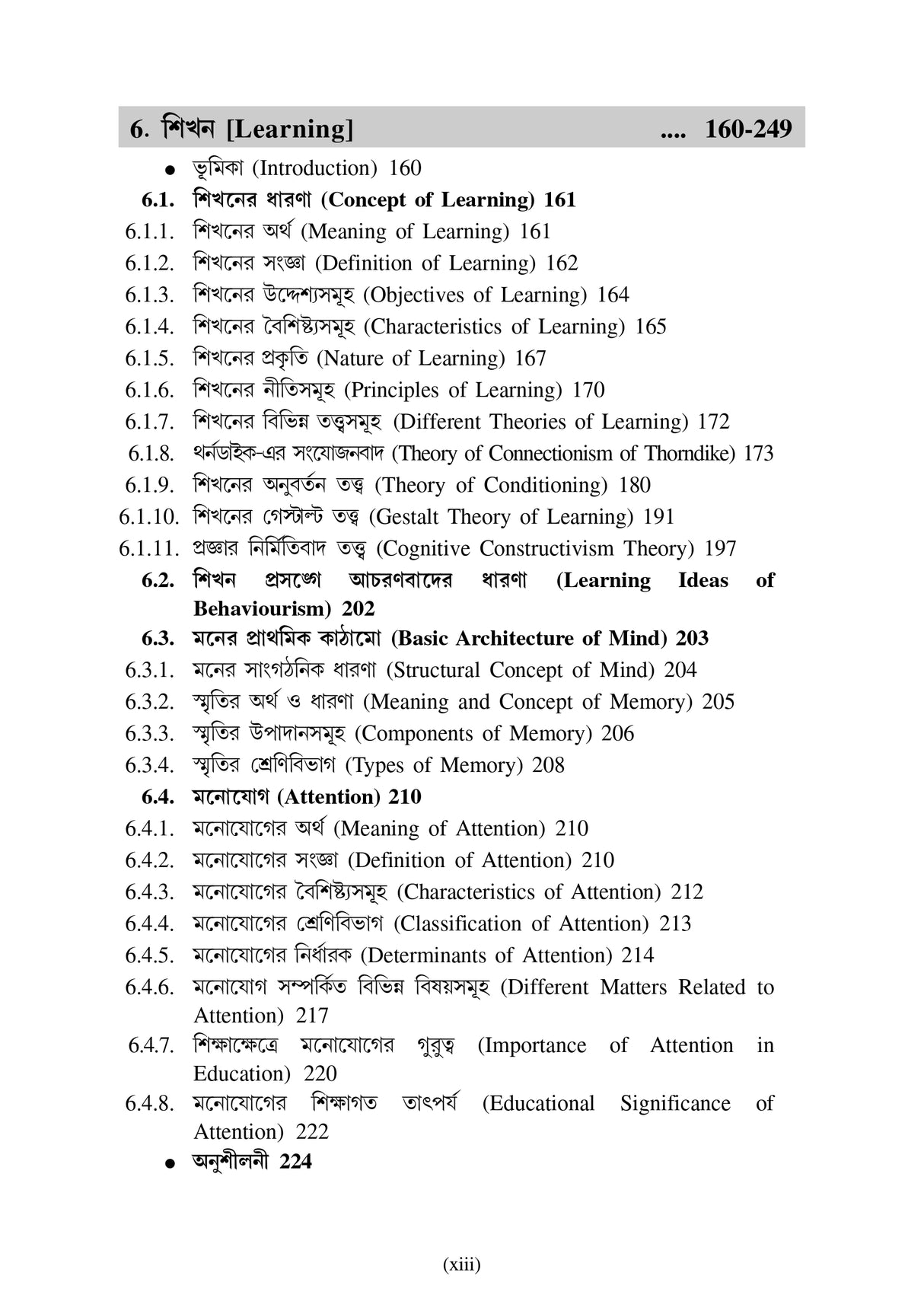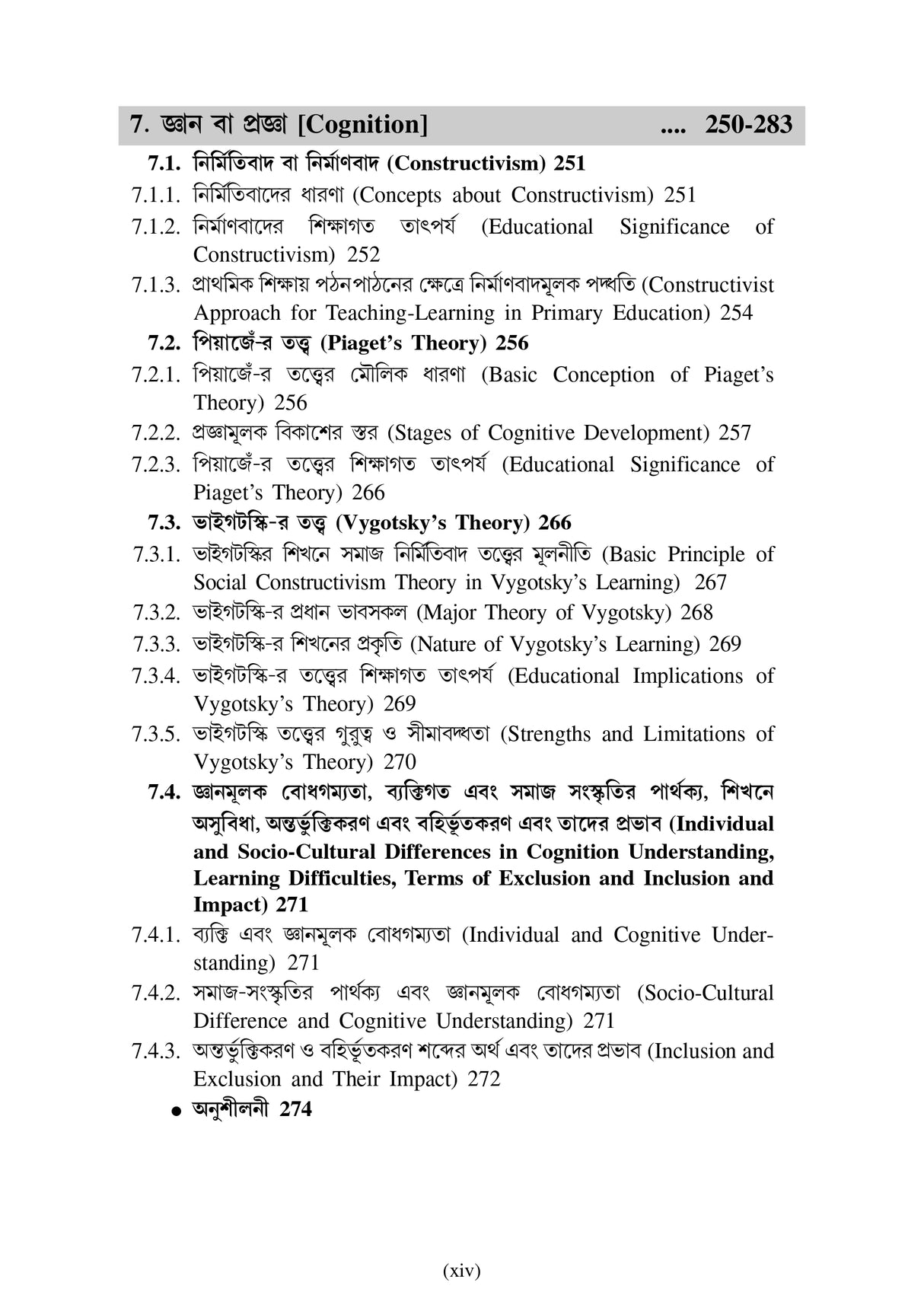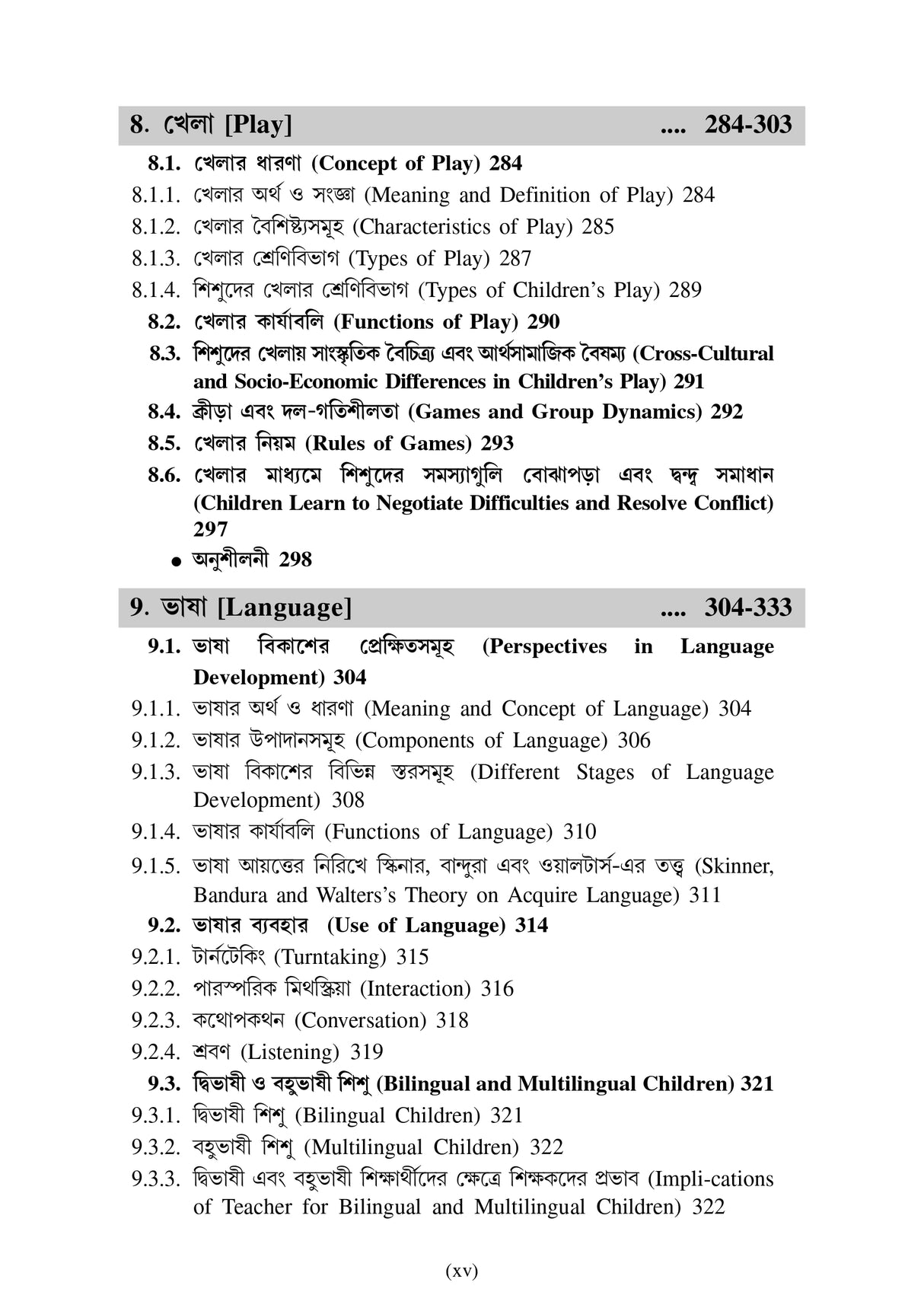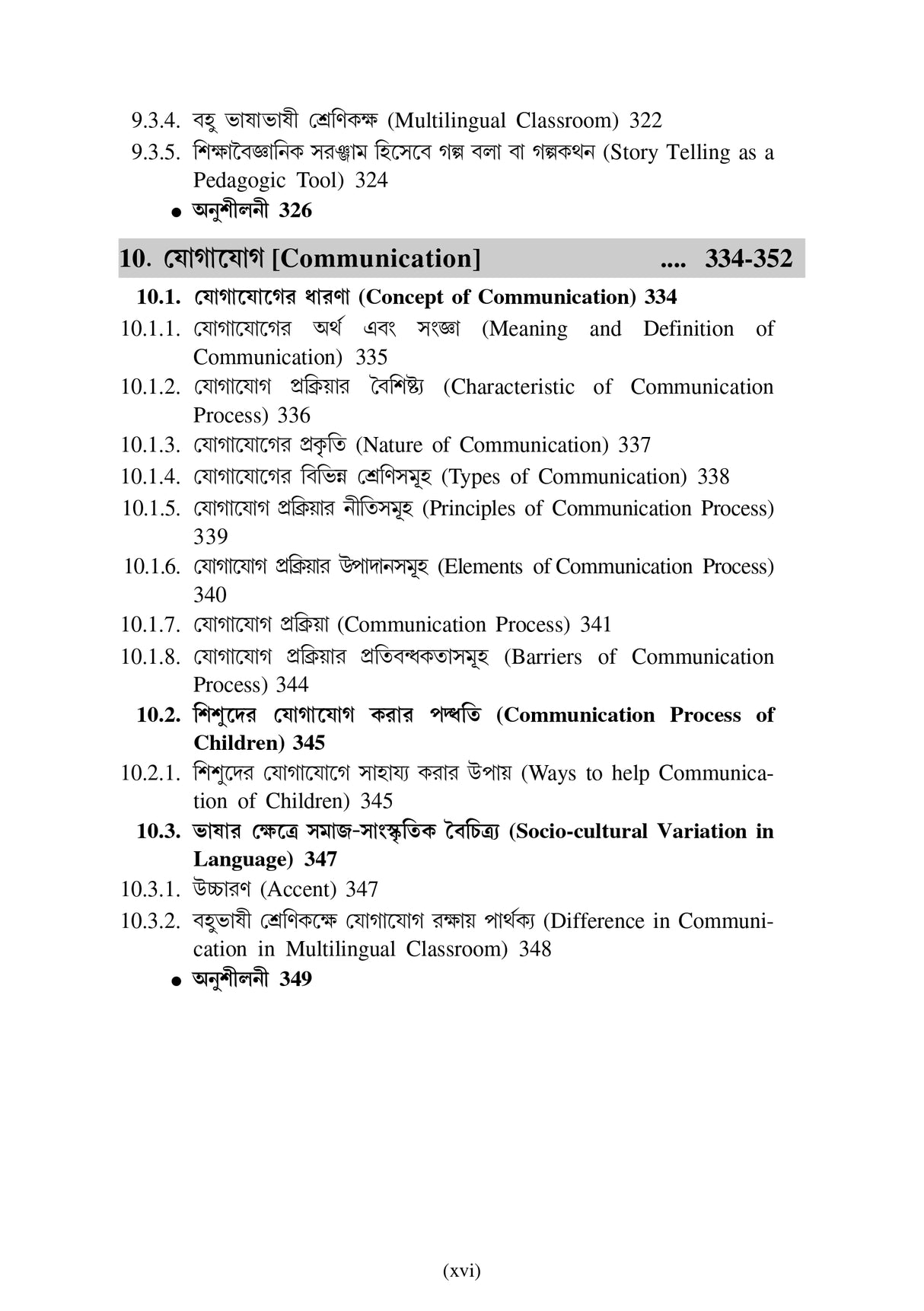CC-01 Prathomik Sikshak Sikshane Sishu Siksha
CC-01 Prathomik Sikshak Sikshane Sishu Siksha is backordered and will ship as soon as it is back in stock.
Couldn't load pickup availability
Genuine Products Guarantee
Genuine Products Guarantee
We guarantee 100% genuine products, and if proven otherwise, we will compensate you with 10 times the product's cost.
Delivery and Shipping
Delivery and Shipping
Products are generally ready for dispatch within 1 day and typically reach you in 3 to 5 days.
Syllabus:
Unit-1: Perspectives in Development? ? ? ? ? ??
- Introduction to perspectives in development ? Concept of development (meaning, principles and objectives).
- Development as multidimensional and plural
- ?Development through the life span (stages)
- Developmental ways as continuous and discontinuous.
- Childhood as modern construct (knowledge- creator) in the context of poverty, globalization and modern culture
- Commonalities and diversities within the notion of childhood with reference to Indian context
Unit-2: Physical-Motor Development? ? ? ? ? ?
- Growth and Maturation
- Gross and fine motor development skills in infancy, pre-school children and elementary children
- Role of parents and teachers in providing opportunities for physical-motor development, for example, play.
Unit-3: Social Development
- Concept of socialization: Family environment, Parent-child relationships, Child rearing practices
- Separation of parents : Children in creches, orphanages etc.
- Schooling: peer influences, Teacher-child relationships, out of school experiences
- Development of children through socialization process
- Personality development? Freudian stages of development
- Psycho-social development? stages as proposed by Erikson
- Social theories and Gender development-meaning of gender roles, influences of gender roles, stereotypes and gender in playground
Unit-4: Self and Moral development? ? ? ? ? ? ?
- A sense of self : Self-description, self-concept, self-esteem, social comparison, internalization and self-control
- Moral development : perspectives of Lawrence Kohlberg
Unit-5: Emotional Development? ??
- Development of emotions and ability to regulate them (Love, affection, fear, anger, jealousy etc.)
- Development of emotions at different stages (pre-school, late childhood and pubertal stages)
- ?Development of emotions as continuous and discontinuous
Unit-6: Learning? ? ? ? ? ? ? ??
- Learning : Concept of learning (meaning, principles and objectives) basic theories of learning
- Learning : ideas of behaviorism
- Basic architecture of the mind (working memory, long term memory, attention, encoding and retrieval)
Unit-7: Cognition? ? ? ? ? ? ??
- Constructivism: introduction to the concept, Piaget?s theory: what is learning, structures and processes of cognitive development, children?s thinking, and implications for teaching learning.
- Vygotsky?s theory?introduction, the general genetic law, concept of zone of proximal development tools and symbols in development, implications for teaching.
- Individual and socio-cultural differences in cognition understanding learning difficulties, terms of exclusion and inclusion and impact.
Unit-8: Play? ? ? ?
- Meaning of Play: Characteristics, kinds and types of Play
- Functions of Play: Linkages with the physical, social, emotional, language, cognitive and motor development of children
- Cross Cultural & Socio-Economic differences in children?s play
- Games and group dynamics, rules of games and how children learn to negotiate differences and resolve conflict.
Unit-9: Language? ? ? ? ? ? ? ?
- Perspectives in Language development (with reference to how children acquire language at early age) : Skinner, Social Learning Theory of Bandura and Walters
- The use of Language : Turn taking, interaction, conversations and listening
- Bilingual or Multilingual children: Implications for teachers, multilingual classrooms, storytelling as a pedagogic tool
Unit-10: Communication?
- How do children communicate?
- Socio-cultural variations in Language: Accents, difference in communication for a multilingual classroom.

